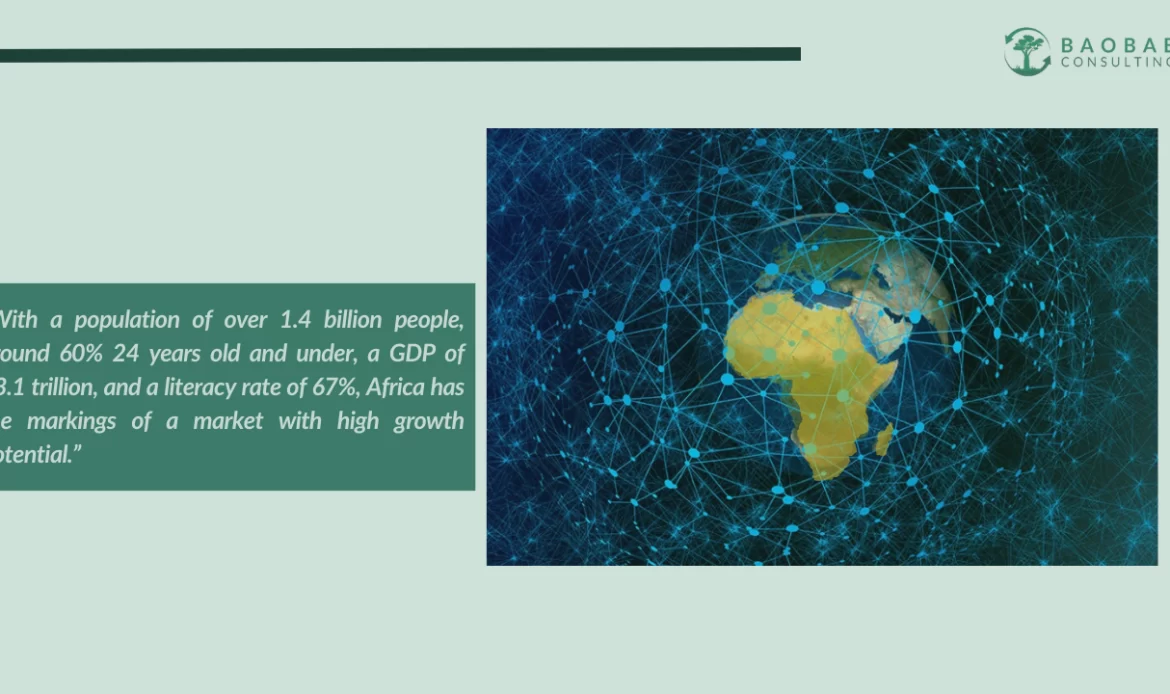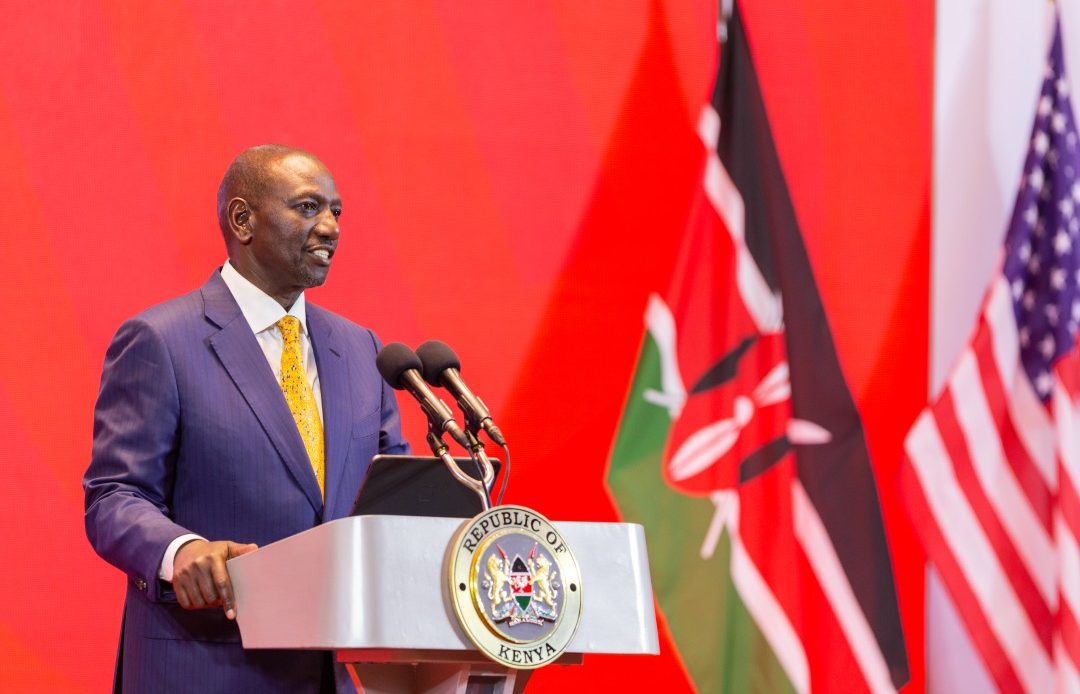The Role of Venture Capital in the Reclaiming of Africa’s Destiny
Africa’s story is being reclaimed by her children on the continent and throughout the diaspora; however, this change is not without challenges. The current narrative about Africa discredits its reputation. Few people will acknowledge that the continent’s companies grow faster and are more profitable than global peers, or that more than 400 African companies earn over US $1 billion annually. Nonetheless, the realities on the ground remain challenging. Youth unemployment and lack of infrastructure interrupt any romanticized view of the continent, with the reality being that 54 countries are going at different speeds with different contexts. Furthermore, we are all still learning how to measure progress. Most methods and metrics of measurements were created in the western world. If held to those measurements, the continent will never “win”; you cannot evaluate a fish by its ability to climb a tree.
We must accept two ideas: one, Africa must be understood by its diversity; and two, we must adopt methods and metrics to evaluate success or progress to local realities.
Year over year, venture capital (VC) investments on the continent are on the rise (US $2B raised in 2019 according to Partech, a 74% increase from 2018). Venture capital, though a small financial player, highlights the biggest sources of wealth: innovative and creative local entrepreneurs. However, there remains a disconnect that keeps local entrepreneurs and foreign VC investors from partnering at a higher capacity. From the local entrepreneurs’ perspective, VC investments are inadequate. From the foreign investors’ perspective, ventures are immature. In this paper, I will uncover the reasons behind that disconnect, share lessons learned through my research, and present recommendations to help alleviate that discrepancy.
The Nature of Entrepreneurship on the Continent
Entrepreneurship is nothing new on the continent. You will be hard-pressed to meet an African who does not know an entrepreneur or has not dabbled in it themselves. Entrepreneurship is omnipresent: it is the survival means of choice. For both the lucky ones who found formal employment and the unemployed but searching, entrepreneurship is a way to make ends meet. What is new is the move from a sole focus on earning additional revenue to innovating and solving problems.
Investing in a new venture is not a new concept for Africans. A common story follows this trend: a cousin has a business idea and approaches a more financially stable family member. The cousin presents the idea, advising how much capital is needed to launch, sustain, or grow the business. Questions raised included: What is the business’ potential? Is it profitable already? When will it break even if it is not profitable? How much of the business is now owned by the investors versus the business owner?
There are two differences today. First, the starting point is different: rather than just a venture to make money, the venture launches to solve a problem for the mass in an innovative way. The investor today purposely looks for innovation and impact. Second, the investor-entrepreneur relationship: although seeking funds from family members is still an option, more entrepreneurs now seek funds from venture capital funds and formal investors. Most of these firms and investors are foreign, which has brought a new set of challenges for the African entrepreneur.
Barriers to Attracting Foreign Investors for Africa-Based, African-Led Startups
There is an unbalanced power relationship in the exchange of capital for equity. Some have argued that entrepreneurs should not feel less powerful in that relationship, but the unfortunate reality of needing funds to survive makes many entrepreneurs desperate. African entrepreneurs find themselves competing for funds with foreign entrepreneurs, who are often seen as better connected, more mobile, and better able to raise funds. Speaking to entrepreneurs from Nairobi to Abidjan, there is a sense that a white, especially male, co-founder greatly increases your chance of getting funding. In 2018, 70% of startups in Kenya who receive funding of US$1M or more from VC were led or co-led by a white founder. Specifically, 65% of the founders were from the US, and the rest were Europeans (Germany, Denmark, the UK).
According to the Guardian, in 2019, 8 of the 10 African-based startups that raised the highest amount of venture capital were led by foreigners. As of August 2019, 45 African ventures had raised US$1M or more: 77% of them had either a white or expat co-founder. The source of the funds indicates the direction of investment.
Human psychology plays a role. First, we are attracted to those who look, behave, and think like us. It takes discipline and a high level of self-awareness to address that bias. Second, decisions, even in VC, are emotional: how do you feel about this investor and this venture? There is no formula. A Yale professor recently published an important article on the power of emotions in decision making. Investors need to be aware and accept their emotional bias, then actively and intentionally work on it.
Familiarity drives investment behavior. Investors invest in people they know, people who look like them, and people they have been introduced to. In a new country or region, this is heightened, and skill matters less than connection. Second is language. By that, I do not mean English or French. Most, if not all entrepreneurs seeking funding from formal investors are well educated individuals, fluent in at least two languages, one of them being English. It is obvious that there is a further disconnect in communication. It is a critical area that needs improvement for investors to widen their investments landscape. So, what to do? There is work needed on both sides, but admittedly, most of the work to date has been placed on the entrepreneurs.
What Can the African Entrepreneur Do to Overcome These Barriers?
What should an entrepreneur do when holding the burden of communication with investors, competing with foreign entrepreneurs, and lacking existing connections with investors? Even though African entrepreneurs have carried most of the burden, for the benefit of their venture, they need to stay vigilant. The first step is understanding your needs for financing and what you are willing to give up. Bootstrapping, although not always possible, is your best friend. Before bringing anyone in your business, I strongly advise entrepreneurs to pause and get cracking on creativity. My father always says: “la facilité tue la créativité”, meaning, if it is easy, you will not be creative, which means you are losing. I was a guest on the Coming Up podcast with Dr. Tim London of University of Cape Town with Lelemba Phiri and Sarah Dusek where we discussed the importance of getting the right financing. For example, a short-term need might be filled by a bank loan or angel investing, as Lelemba wrote in this article on LinkedIn. There are different avenues available for funding based on your needs, which should not necessarily include a race to fame. For example, Leelou Baby Food in Cameroon raised start-up funds through organized crowdfunding working with Mougano Investments; or Enda Sportswear in Kenya who used Kickstarter campaigns to generate revenues to fund initial production.
As you think through the right type of funding for your ventures, you should also go through each line of your financial statements. Do you need to increase your price or change your overall pricing strategy? Yes, increasing your price is an option: sometimes more revenue from a few line items can be better than waiting for growth. What about your supply chain and your distribution channels? Review your options and renegotiate your contracts.
Most investors, if not all, are shooting in the dark. The entrepreneur has more control than they realize. Entrepreneurs go full steam ahead with confidence! Do not waste time and energy pursuing inactive investors, your energy is better spent on your venture. A “no” from an investor is not necessarily a reflection of your venture’s potential. A no may be for lack of funding, lack of staff with adequate local experience, or outside their area/sector of investment.
What Can the Foreign Investor Do to Bridge the Gap?
On the other hand, what should an investor do to lighten the burden and help develop the ecosystem for all stakeholders involved? First, investors without adequate funds must be respectful of the entrepreneurs’ time. The challenges of entrepreneurship are numerous and worse in frontier markets like African countries given the lack of infrastructure and support. Many entrepreneurs expressed their frustration about working with first- time fund managers who are inexperienced and lack knowledge of local context, or worse – fund managers without funds. If you do not have the funds or the experience, find other partners (i.e. experienced local fund managers and incubator and accelerator program managers) and be transparent. The humility of asking questions and learning from others will earn you respect and open doors. Most entrepreneurs will be happy to present their business in an informal fashion, which could be advantageous.
Second, for investors to get ahead and identify new opportunities efficiently, you must learn the local language. I do not simply mean learning Kiswahili, Wolof, or English Pidjin. Although you are welcome to learn those and you will earn points for it, it is even more vital that you learn the cultural interpretations. If Americans and the British can mean two different things in saying “taking a lyft”, you can imagine the same occurring on the continent. In Professor Tim London’s podcast, Phiri speaks of the challenge around conciseness. Investors should want entrepreneurs focused on growing the business, not on speaking the right lingo and style. This requires work on the part of the investor.
Third, intentionally plug in the diaspora as part of your hiring strategy. There is an increasing interest among the diaspora to relocate and have an impact on the continent. What better way to be impactful than to provide business guidance and capital to deserving entrepreneurs? Finding talent on the continent is not easy, even local business owners will agree. The diaspora shares the languages and the cultures of both foreign investors and local entrepreneurs. Organizations like Move Me Back regularly communicate open positions on the continent. Most schools in the US or Europe have an African-focused club. Organizations like the African Diaspora Network consistently bring the African diaspora together. However, keep in mind that this is not the ultimate solution; the diaspora gives you an in, but not a complete picture.
Finally, listening with humility is a must. Spend time educating yourself and challenge your framework and expectations. Experience abroad as an entrepreneur or as an investor matters but is not complete. You may have the investment experience, but you lack the local context. Incubators and accelerators have become the conduit to find the right ventures. Go further and use them as translators. As you learn, you will make mistakes and recognize that entrepreneurs as well will make mistakes. It is vital to allow space for the investors and the entrepreneurs to learn. These steps take additional time and work, but it will be worth it.
Conclusion
VC Investments in Africa are growing in size and in numbers. Entrepreneurs are creative, persistent, and hardworking individuals launching innovative and impactful start-ups. However, the disconnect between investors and entrepreneurs reduces the impact that capital flow and opportunities can have on the continent. There is an unfortunate parallel with investments in minority-owned companies in the Western World, but I have hope that there is gradual acknowledgement and addressing of these issues. Entrepreneurs ought to remain vigilant with their ventures and improve their business acumen skills. As entrepreneurs, understand and pivot per your market, focus on customer acquisition, and your growth will attract money. Investors ought to learn and internalize local languages and context. Investors’ behaviors matter, poor decision making can and will lead to market distortion. As all stakeholders learn, the ecosystem will improve and everyone will win.





